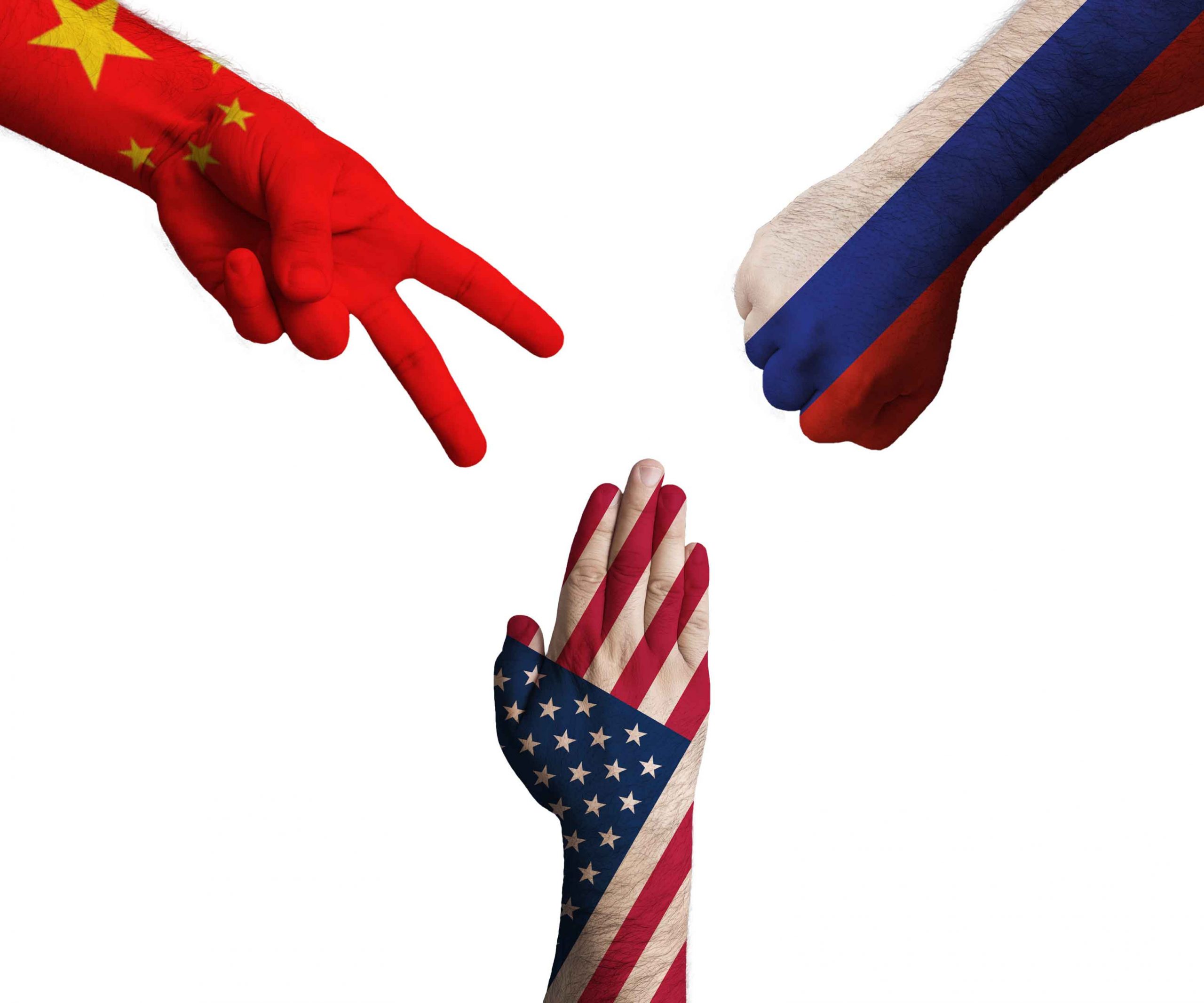Clashing with Two Great Powers at Once Is Bad Policy

Right out of the gate, the Biden administration seems to be at loggerheads with both China and Russia. Richard Nixon would be disappointed.
Despite his reputation as an anticommunist, Nixon managed to get China and the Soviet Union in a competition to better relations with the United States. His diplomatic opening to the weaker and more radical Maoist China spurred the communist USSR to desire détente with the United States and the first U.S.-Soviet strategic arms limitation treaty (SALT I Treaty) for limiting long-range nuclear missiles.
To his immense credit, Joe Biden, almost immediately upon taking office, renewed with Russia a descendant of the SALT I Treaty, the New Strategic Arms Reduction Treaty (START) Treaty, for another five years. This treaty mitigates the only existential threat to the United States in its history—global thermonuclear annihilation. Yet the U.S.-Russian relationship is fraught, with the Putin regime’s interference in the 2016 and 2020 U.S. elections, incursion into Ukraine, and attempts to kill opponents.
U.S. gripes with China include territorial disputes with its neighbors in the South and East China Seas, oppression of the Uighurs in Xinjiang in western China, revocation of democracy in Hong Kong, trade practices perceived as unfair, and its military buildup, including its growing nuclear arsenal.
Despite all the publicity surrounding Vladimir Putin’s evil deeds, a prospering and rising China is a bigger challenge for the United States in the long run. Ideally, Biden should do the opposite of Nixon. He should make nice with the weaker Russia to balance the ascending Chinese challenger.
The most important sticking point in improving relations with Russia is its unacceptable meddling in U.S. elections. Although the United States has meddled in other countries’ elections for decades (it should stop), such Russian behavior is a major threat to the security of the American republic. Presidents Barack Obama and especially Donald Trump failed to punish Russia enough for this intolerable behavior. But now perhaps Biden should use the carrot instead of the stick, attempting a grand bargain with Russia.
In the long run, Russia—with an underpopulated East Asian region and a long border with very populated China—should have more to fear from that nation than from the United States, and thus might very well appreciate an improvement in relations with America to balance the nearer rival. In exchange for being given a tacit sphere of influence in Ukraine and Belarus in which the United States would not meddle, Russia would need to agree to desist permanently from interfering with U.S. elections. Ukraine and Belarus have traditionally had a special significance to Russia, and it might be eager to lock down security there. For centuries, Russia’s vulnerable western approaches have been breached by foreign powers, and millions of Russians have died in these invasions. However, this grand bargain would mean that Ukraine could never be admitted into NATO, the fear of which caused Russia to annex Crimea and stir up unrest in eastern Ukraine.
Likewise, the United States could improve relations with China by announcing that it will not involve itself in territorial disputes in the East and South China Seas, which the Trump administration had inched closer toward doing. These disputes are on the other side of a vast Pacific Ocean and so are little threat to U.S. security. Biden should be more concerned with bipartisan adoption of protectionism in America than what China does in international economic policy, including China’s wasteful Belt and Road boondoggle as it seeks to get ever elusive “influence” around the world; China’s “unfair” trade practices hurt itself the most. Finally, the United States should let the international community take the lead in publicly criticizing China for repressing Uighurs and democracy in Hong Kong.
In sum, in the 21st century, the cash-strapped United States, with a monstrous and growing public debt, needs to give up its aberrant post-World War II—and futile—foreign policy of policing the entire world. If America does not reduce its global footprint, it could go the way of many dominant nations, including the British and Russian Empires, by being greatly diminished by relative financial and economic decline. Instead, the United States should adopt what Franklin Roosevelt was considering before he became mesmerized with creating the United Nations. Each great power—currently the United States, China, Russia, Germany, and India—would mind its own region to tamp down conflict locally. Problems that crossed regional boundaries could be addressed in an expanded U.N. Security Council. The United States does not need to turn inward, it just needs to be realistic about what can be achieved in the world politically and militarily, and concentrate instead on reducing debt and instituting policies that will enhance its global influence by attaining unprecedented levels of prosperity.
Ivan Eland is senior fellow at the Independent Institute and director of the Independent Institute’s Center on Peace & Liberty. He is the author of War and the Rogue Presidency.